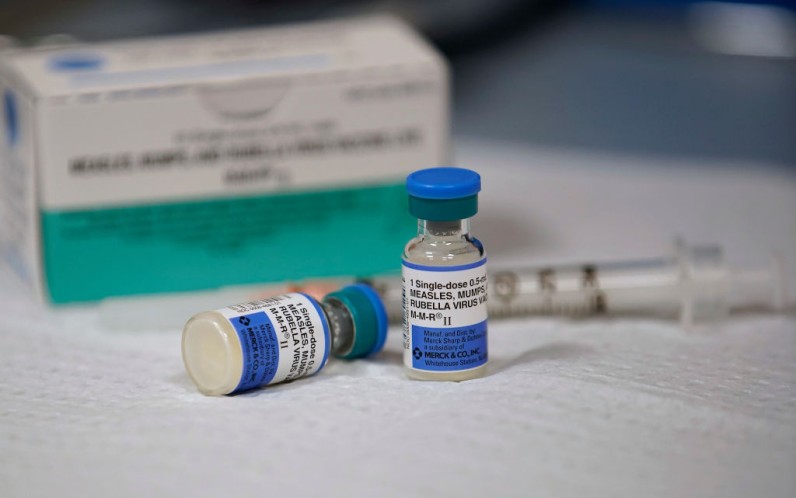
The Food and Drug Administration (FDA) approved Merck's new vaccine, designed to protect adults from a bacteria known as pneumococcus that could cause severe illnesses like pneumonia.
In a statement Monday (June 17), the company described its shot, Capvaxive, as a vaccine specifically designed to help protect adults against the stereotypes that caused the majority of cases of invasive pneumococcal disease (IPD), which could lead to pneumonia if it spread to other parts of the body.
The drugmaker added that Capvaxive is the first pneumococcal conjugate vaccine explicitly designed for adults and aims to provide broader protection than the available shots in the market.
Merck's Capvaxive product development team leader Heather Platt told CNBC that the shot would prevent or eliminate complications of chronic lung disease, with around 150,000 adults in the United States hospitalized with pneumococcal pneumonia each year.
However, even after FDA approval, the company's vaccine would have to pass the scrutiny of the Centers for Disease Control and Prevention (CDC), which will meet on June 27 to discuss who would be eligible for the shot.
Platt added that if all goes to plan, Merck would support the committee's decision and be ready to supply the vaccine by late summer.
Advantage of Merck's Shot vs. Pfizer's
With the FDA approval now in the books, some analysts say that Capvaxive would become Merck's key growth driver after compensating for the global reach of its cancer drug Keytruda, which would lose exclusivity in the US in 2028.
In November, analysts from Cantor Fitzgerald said that the pneumococcal vaccines market is currently at around $7 billion and is expected to grow to over $10 million in the next few years.
Capvaxive could also bolster Merck's competitive edge against other players like Pfizer, as their two other pneumococcal shots are designed for adults.
Citing CDC data, the company's shot would account for roughly 21 pneumococcal strains or 85% of the total IPD cases in adults 65 and above. On the other hand, Pfizer's Prevnar could target strains that only account for roughly 51% of the cases of the same age group.
MarketWatch additionally reported that Merck released late-stage trial data, which showed that Capvaxive prompted non-inferior immune responses for adults aged 50 and above.







Join the Conversation